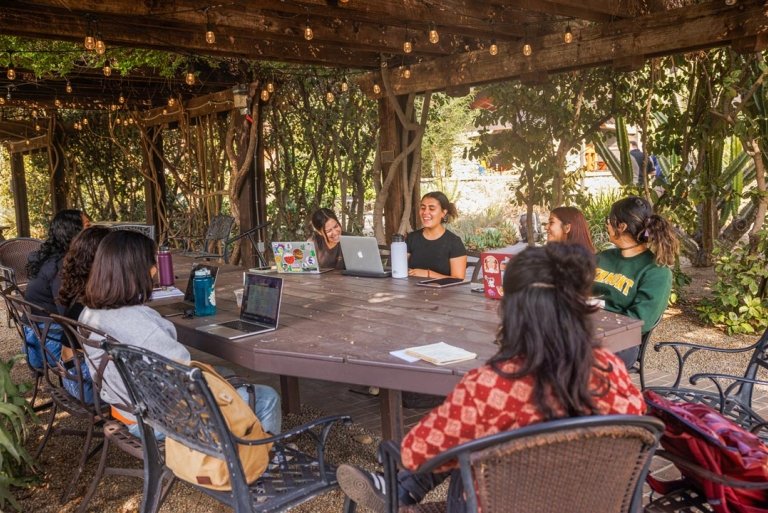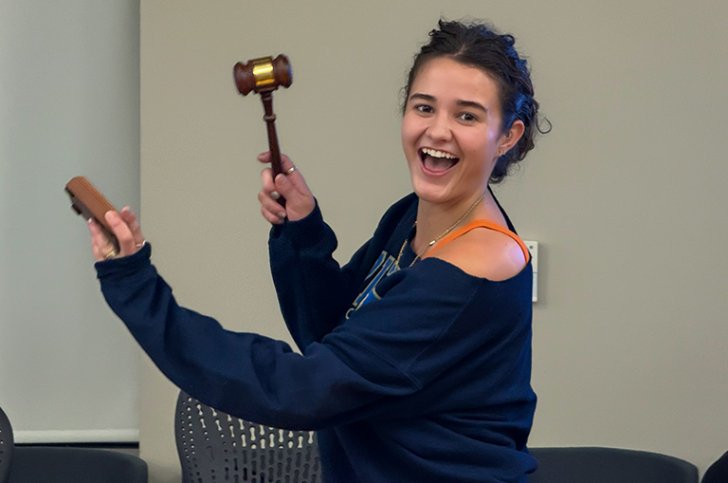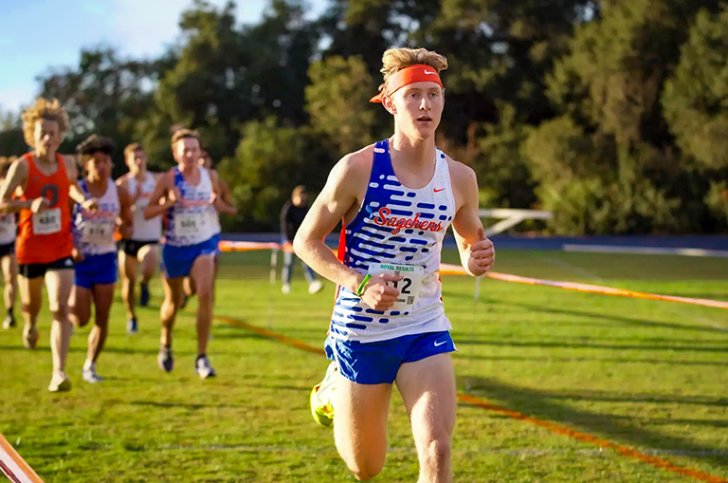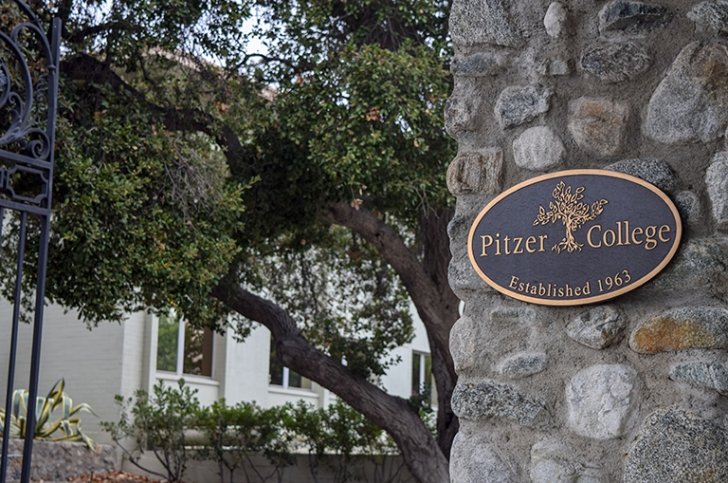What is Race in Shakespeare? First-Year Seminars Experiment in Academics This Fall
Fall 2024 first-year seminars delve into race in Shakespeare and pop culture, Los Angeles field trips, radical community care, animals in movies, and more.

Academic experimentation thrives in Pitzer College’s first-year seminars (FYS). One class studies race using the works of Shakespeare and digital pop culture. Another class grapples with the scientific method’s strengths and flaws. Still another class offers day trips to Los Angeles to experience the city’s cultural life. The FYS program immerses students in multidisciplinary topics that encourage critical thinking and strengthen academic writing.
Every Pitzer student takes a first-year seminar, which includes small-group discussions and writing about different subjects. The seminar is the first taste of Pitzer’s academic life. The fall 2024 FYS slate draws from many disciplines to dig into topics such as the cinema of animals, social justice and radical care, and how to think like an economist.
If you were a student at Pitzer, what seminar would you choose? Consider the following sample of this fall’s courses:
Racial Imaginaries: From Shakespeare to the Digital Age
This course uses literary texts and media to explore race—specifically in storytelling around bodies that are “read” differently from others. How does race intersect with social constructions of beauty? How can an analysis of Shakespeare, poetry, or digital pop culture build a deeper understanding of the politics of race in the modern world?
Animals in the Movies
Since the invention of motion pictures, animals have been an essential presence. The desire to capture moving images of animals spurred technological innovations. Animals have also been compelling for filmmakers as allegories, narrative subjects, and the focus of documentarians and activists. This class explores how animals have appeared in movies from their origins to the present.
Brazil Beyond Sol, Praia e Futebol
Brazil is Latin America’s largest nation and the only one in which Portuguese is spoken. This seminar explores Brazil’s cultural history through its film, literature, music, and visual arts. Students look at how and why Brazil went from being considered an emergent global power to seeing its democracy threatened and its society deeply polarized.
Practicing Science: Chasing Knowledge with Imperfect Tools (and Imperfect Minds)
This course discusses the strengths and limitations of the scientific method through case studies of hallmark scientific endeavors. Students think critically about how the scientific method works, abstractions and complications of the experimental process, influences of the human mind (our cognitive biases), and how we come to “understand” reality.
Thinking Like an Economist
This seminar rationalizes real-world events using an economist’s toolkit. Students learn why janitors earn minimum wages despite being essential workers and why life-sustaining water is cheaper than ornamental diamonds. This class also explores policy issues such as ending race-based affirmative action in higher education and enforcing stricter border control.
The Ancient Mediterranean World—Then and (Up To) Now
The ancient Mediterranean is famous as the home of the Greeks and Romans. This course explores this world on its own terms and considers how it has been reconstructed and interpreted. This class does not trace an arc of “Western civilization.” It touches on how the Greco-Roman past influences modern ideas about race, played a role in slavery and abolition in the U.S., and shows up in modern art, literature, and pop culture.
Sustainable Futures: Exploring Motivations for Change
This seminar investigates the intricate motivations behind sustainability initiatives. Students engage in dynamic discussions, hands-on projects, and real-world examples from public policy, corporations, universities, and media. The class uncovers the diverse reasons driving sustainable practices, from ethical considerations to economic benefits.
Los Angeles: The City and its People(s)
This seminar explores the history, socio-cultural fabric, and urban landscapes of the City of Angels, as well as some of its representations on cultural productions locally and globally. Class materials include academic and literary readings, films, and full-day field trips to explore museums, urban landscapes, street art, restaurants, and other cultural manifestations of its life.
Living with Unfreedom
For over half a century, the West regarded itself as the champion of human liberty. Sadly, recent political events have demonstrated that no society is immune from authoritarian erosion. In this course, students read classic works that depict lives under totalitarianism and ponder how to best guard against unfreedom in both action and human consciousness.
Radical Care
The recent pandemic made more visible a powerful fact: we are in a global “crisis of care.” How are artists and activists pushing back against this crisis, forging collective movements that view “care” for oneself and one’s community as moral imperatives to act? How might radical care—in literature, activism, and art—call into being more socially just relations?
College Campus Culture in Literature
Most U.S. college graduates still remember their undergraduate days as a transformative period. Students read texts that explore the wonderfully strange experience of college life, use writing to tease out the significance of college, and take stock of how their time at college has transformed them on and off the page.
Learn more about the first-year seminars for fall 2024.
About Pitzer College
Founded in 1963 as a member of The Claremont Colleges, Pitzer College is an academically rigorous, inclusive liberal arts institution committed to open inquiry, community engagement, and educational access for all students. Rooted in a commitment to social justice, environmental sustainability, and meaningful community engagement, Pitzer empowers students to think boldly, act with purpose, and contribute to a more thoughtful and compassionate world.
News Information
Published
Author
Bridgette Ramirez


